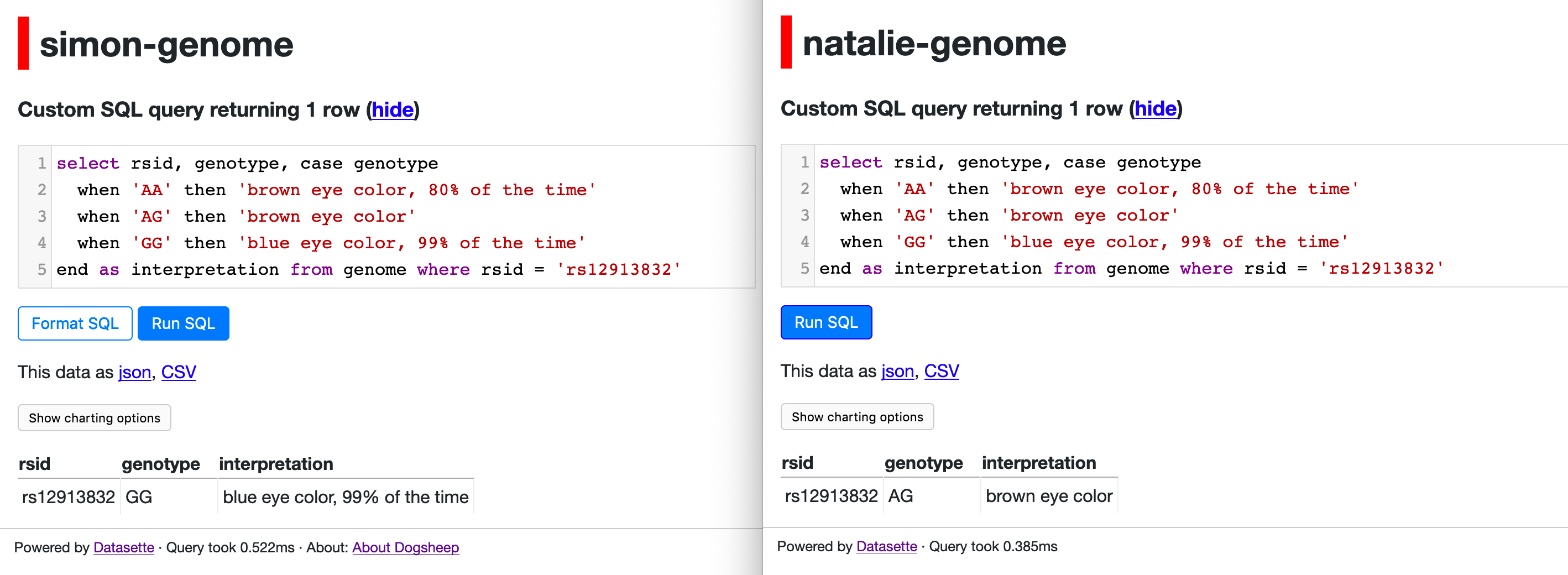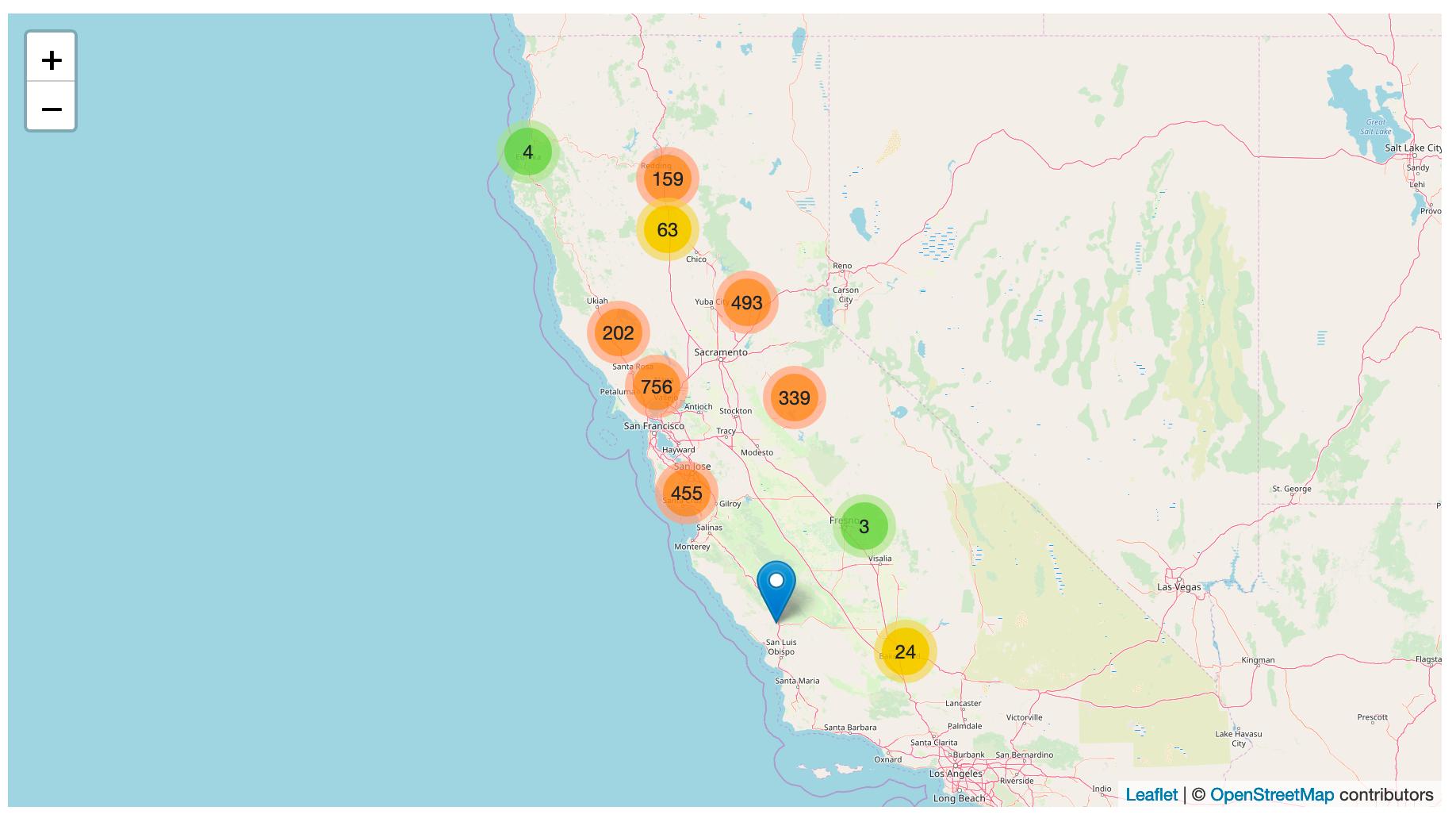522 posts tagged “projects”
Posts about projects I have worked on.
2020
How to cheat at unit tests with pytest and Black
I’ve been making a lot of progress on Datasette Cloud this week. As an application that provides private hosted Datasette instances (initially targeted at data journalists and newsrooms) the majority of the code I’ve written deals with permissions: allowing people to form teams, invite team members, promote and demote team administrators and suchlike.
[... 933 words]Weeknotes: Shaving yaks for Datasette Cloud
I’ve been shaving a lot of yaks, but I’m finally ready to for other people to start kicking the tires on the MVP of Datasette Cloud.
[... 392 words]geojson-to-sqlite (via) I just put out the first release of geojson-to-sqlite—a CLI tool that can convert GeoJSON files (consisting of a Feature or a set of features in a FeatureCollection) into a table in a SQLite database. If you use the --spatialite option it will initalize the table with SpatiaLite and store the geometries in a spacially indexed geometry field—without that option it stores them as GeoJSON.
Weeknotes: datasette-auth-existing-cookies and datasette-sentry
Work on Datasette Cloud continues—I’m tantalizingly close to having a MVP I can start to invite people to try out.
[... 701 words]Weeknotes: Datasette Cloud and zero downtime deployments
Yesterday’s piece on Tracking FARA by deploying a data API using GitHub Actions and Cloud Run was originally intended to be my weeknotes, but ended up getting a bit too involved.
[... 1,431 words]Tracking FARA by deploying a data API using GitHub Actions and Cloud Run
I’m using the combination of GitHub Actions and Google Cloud Run to retrieve data from the U.S. Department of Justice FARA website and deploy it as a queryable API using Datasette.
[... 1,599 words]Building a sitemap.xml with a one-off Datasette plugin
One of the fun things about launching a new website is re-learning what it takes to promote a website from scratch on the modern web. I’ve been thoroughly enjoying using Niche Museums as an excuse to explore 2020-era SEO.
[... 1,078 words]2019
sqlite-utils 2.0: real upserts
I just released version 2.0 of my sqlite-utils library/CLI tool to PyPI.
[... 1,140 words]Logging to SQLite using ASGI middleware
I had some fun playing around with ASGI middleware and logging during our flight back to England for the holidays.
[... 2,535 words]Monarch Bear Grove on Niche Museums (via) Monarch Bear Grove is my favourite hidden corner of Golden Gate Park in San Francisco. It has stone circles formed from pieces of a Spanish monastery that was exported to the USA by press baron William Randolph Hearst. And there are druids. You should read the whole thing. (I added paragraph breaks for this using datasette-render-markdown—Niche Museums is basically a full-blown blog now.)
datasette-atom: Define an Atom feed using a custom SQL query
I’ve been having a ton of fun iterating on www.niche-museums.com. I put together some notes on how the site works last week, and I’ve been taking advantage of the Thanksgiving break to continue exploring ways in which Datasette can be used to quickly build database-backed static websites.
[... 1,084 words]niche-museums.com, powered by Datasette
I just released a major upgrade to my www.niche-museums.com website (launched last month).
[... 1,154 words]Weeknotes: datasette-template-sql
Last week I talked about wanting to take ona a larger Datasette project, and listed some candidates. I ended up pushing a big project that I hadn’t listed there: the upgrade of Datasette to Python 3.8, which meant dropping support for Python 3.5 (thanks to incompatible dependencies).
[... 521 words]datasette-template-sql (via) New Datasette plugin, celebrating the new ability in Datasette 0.32 to have asynchronous custom template functions in Jinja (which was previously blocked by the need to support Python 3.5). The plugin adds a sql() function which can be used to execute SQL queries that are embedded directly in custom templates.
Datasette 0.31. Released today: this version adds compatibility with Python 3.8 and breaks compatibility with Python 3.5. Since Glitch support Python 3.7.3 now I decided I could finally give up on 3.5. This means Datasette can use f-strings now, but more importantly it opens up the opportunity to start taking advantage of Starlette, which makes all kinds of interesting new ASGI-based plugins much easier to build.
sqlite-transform. I released a new CLI tool today: sqlite-transform, which lets you run “transformations” against a SQLite database. I built it out of frustration of constantly running into CSV files that use horrible American date formatting—the “sqlite-transform parsedatetime my.db mytable col1” command runs dateutil’s parser against those columns and replaces them with a nice, sortable ISO formatted timestamp. I’ve also added a “sqlite-transform lambda” command that lets you specify Python code directly on the command-line that should be used to transform every value in a specified column.
Weeknotes: Niche Museums, Kepler, Trees and Streaks
Every now and then someone will ask “so when are you going to build Museums Near Me then?”, based on my obsession with niche museums and websites like www.owlsnearme.com.
[... 872 words]Weeknotes: The Squirrel Census, Genome SQL query
This week was mostly about incremental improvements. And squirrels.
[... 911 words]Weeknotes: PG&E outages, and Open Source works!
My big focus this week was the PG&E outages project. I’m really pleased with how this turned out: the San Francisco Chronicle used data from it for their excellent PG&E outage interactive (mixing in data on wind conditions) and it earned a bunch of interest on Twitter and some discussion on Hacker News.
[... 452 words]Tracking PG&E outages by scraping to a git repo
PG&E have cut off power to several million people in northern California, supposedly as a precaution against wildfires.
[... 868 words]SQL Murder Mystery in Datasette (via) “A crime has taken place and the detective needs your help. The detective gave you the crime scene report, but you somehow lost it. You vaguely remember that the crime was a murder that occurred sometime on Jan.15, 2018 and that it took place in SQL City. Start by retrieving the corresponding crime scene report from the police department’s database.”—Really fun game to help exercise your skills with SQL by the NU Knight Lab. I loaded their SQLite database into Datasette so you can play in your browser.
Weeknotes: Dogsheep
Having figured out my Stanford schedule, this week I started getting back into the habit of writing some code.
[... 1,367 words]twitter-to-sqlite 0.6, with track and follow. I shipped a new release of my twitter-to-sqlite command-line tool this evening. It now includes experimental features for subscribing to the Twitter streaming API: you can track keywords or follow users and matching Tweets will be written to a SQLite database in real-time as they come in through the API. Since Datasette supports mutable databases now you can run Datasette against the database and run queries against the tweets as they are inserted into the tables.
Weeknotes: Design thinking for journalists, genome-to-sqlite, datasette-atom
I haven’t had much time for code this week: we’ve had a full five day workshop at JSK with Tran Ha (a JSK alumni) learning how to apply Design Thinking to our fellowship projects and generally to challenges facing journalism.
[... 870 words]genome-to-sqlite. I just found out 23andMe let you export your genome as a zipped TSV file, so I wrote a little Python command-line tool to import it into a SQLite database.
Weeknotes: ONA19, twitter-to-sqlite, datasette-rure
I’ve decided to start writing weeknotes for the duration of my JSK fellowship. Here goes!
[... 919 words]sqlite-utils 1.11. Amjith Ramanujam contributed an excellent new feature to sqlite-utils, which I’ve now released as part of version 1.11. Previously you could enable SQLite full-text-search on a table using the .enable_fts() method (or the “sqlite-utils enable-fts” CLI command) but it wouldn’t reflect future changes to the table—you had to use populate_fts() any time you inserted new records. Thanks to Amjith you can now pass create_triggers=True (or --create-triggers) to cause sqlite-utils to automatically add triggers that keeps the FTS index up-to-date any time a row is inserted, updated or deleted from the table.
Working with many-to-many relationships in sqlite-utils (via) I just released sqlite-utils 1.9 with syntactic sugar support for creating many-to-many relationships for records stored in SQLite databases.
Single sign-on against GitHub using ASGI middleware
I released Datasette 0.29 last weekend, the first version of Datasette to be built on top of ASGI (discussed previously in Porting Datasette to ASGI, and Turtles all the way down).
[... 1,612 words]

